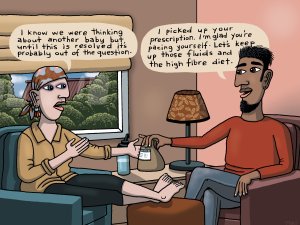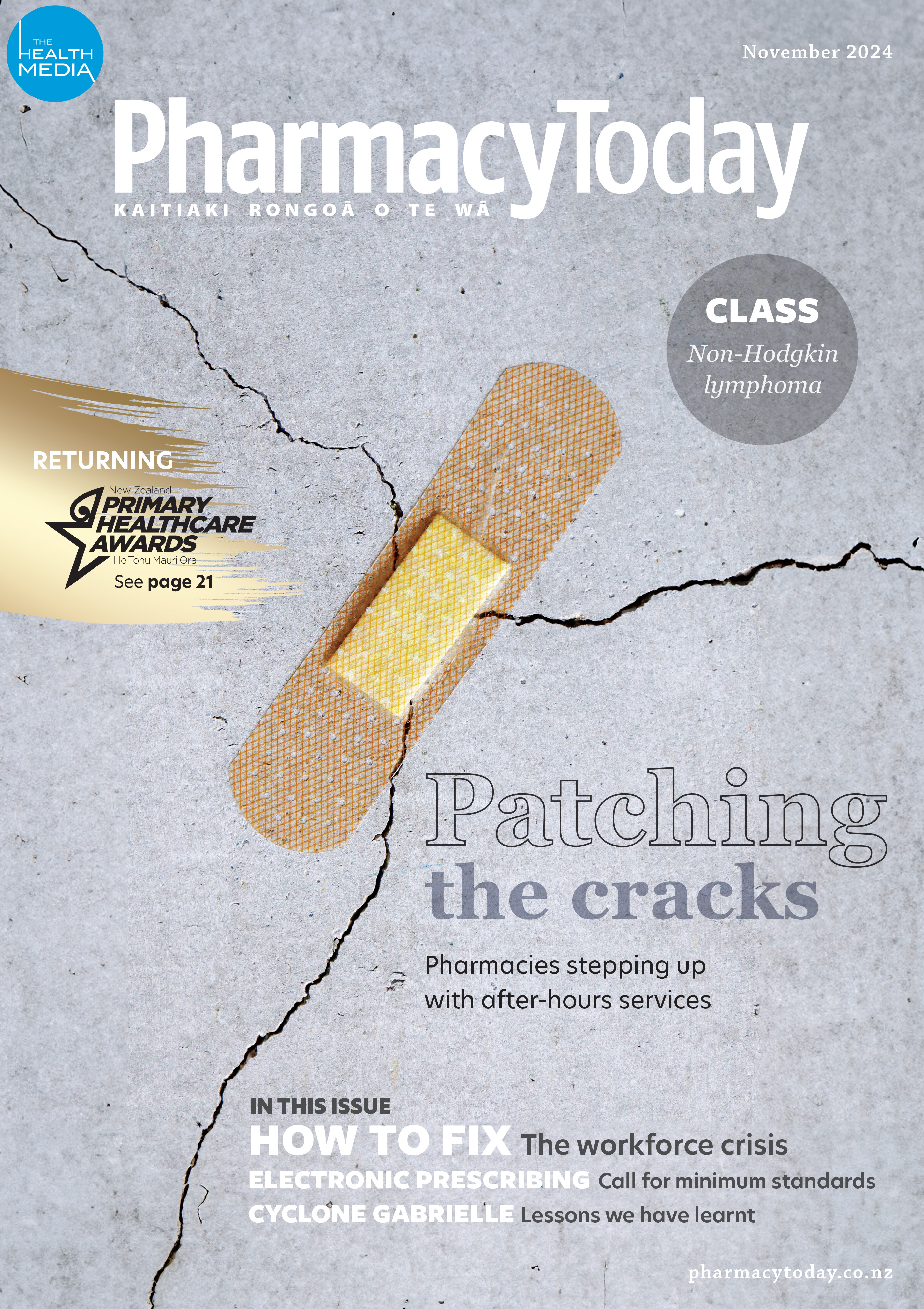Academic pharmacist Nataly Martini highlights the importance of understanding non-Hodgkin lymphoma and pharmacists’ roles in managing this condition
Pharmacies should be seen as emergency responders
Pharmacies should be seen as emergency responders
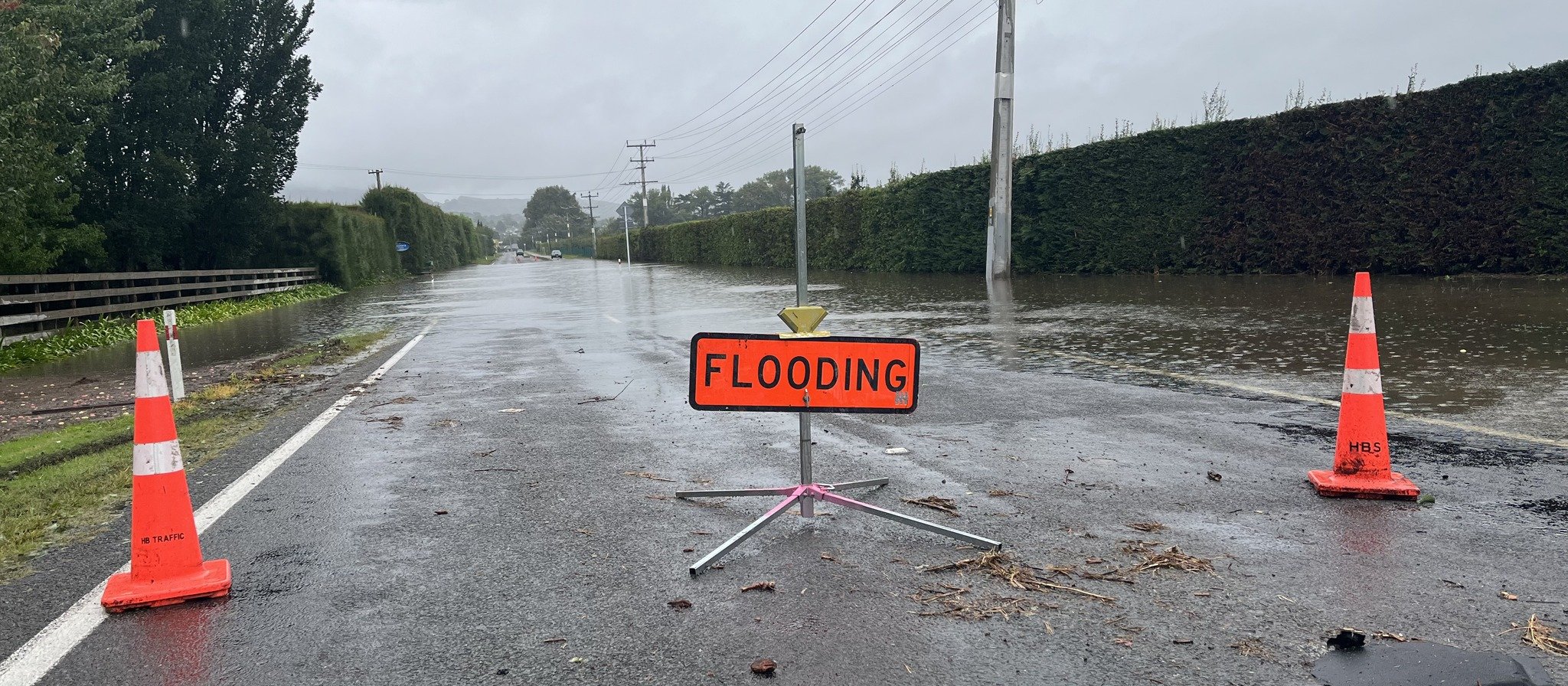
After Cyclone Gabrielle there were complaints that pharmacies were at the back of the queue for generators and fuel, leading to calls for them to be prioritised for future events. Natasha Jojoa Burling reports
- Sector leaders say pharmacies were not prioritised for generators or fuel after Cyclone Gabrielle.
- They want pharmacies to be recognised as emergency responders during disasters.
- Te Whatu Ora is reviewing the health and disability response to the cyclone and expects lessons to be learned.
Pharmacies are an amazing resource but have to be on their feet
Te Whatu Ora is reviewing the health and disability sector response to Cyclone Gabrielle. It follows criticism from some pharmacists and pharmacy leaders about a lack of support during the disaster. They want pharmacies to be classed as emergency responders and given priority during future disasters.
Many pharmacies in Hawke’s Bay took a “number eight wire” approach or had to rely on the generosity of their community when the cyclone cut electricity to much of the region on 14 January.
Glenns Pharmacy, Napier, owner Rebekah Taylor was loaned a generator by a member of the public the Monday after the cyclone hit. Mrs Taylor says when she made a pandemic plan before COVID-19, health authorities promised there was a stock of generators in the region that pharmacies could access in a disaster.
However, when she asked for a generator after the cyclone, she was told they had all been distributed elsewhere.
Via email, Te Whatu Ora interim head of emergency management, Justin Rawiri, says there has never been a stock of generators like that in Hawke’s Bay.
Mr Rawiri says the initial request for generators was made to the team leading the cyclone response and through Civil Defence on 14 and 15 February. Several avenues were explored to secure generators to assist health-service providers in the region.
On 18 February, Health Hawke’s Bay provided generators to Clive Medical Centre, Maraenui Medical Napier, Greendale Family Health Centre and Tamatea Medical Centre. Napier Health was also providing pharmacy and urgentcare services at that time. The following day, generators that had been purchased or hired were delivered to Hawke’s Bay Hospital and distributed where needed.
“It is expected pharmacies, like any other business, will have robust business continuity and disaster preparedness plans, which consider and address the ability to function in a power outage,” says Mr Rawiri.
A significant amount of equipment, food and medicine was sent to Hawke’s Bay during the early stages of the response, to transform Napier Health into a temporary emergency department.
Thirty Starlink satellite-internet devices were also sent to the region to help alleviate communication issues.
Pharmaceutical Society president Professor Rhiannon Braund says an outdoor adventure store provided pharmacies with satellite phones, otherwise there would have been no way to connect. “It was done through sensible people and goodwill, not a plan,” says Professor Braund, who works in the division of health sciences at the University of Otago. Without community help, things would have been worse.
She is disappointed pharmacy was not recognised as a key healthcare provider. It meant pharmacies were not prioritised for fuel for generators and medicine-delivery cars. Some pharmacy workers also had trouble getting across bridges between Napier and Hastings, even though they had letters from Te Whatu Ora. Medicine wholesalers ran into problems transporting stock.
“Pharmacy is the grey and unseen area, where we provide a vital service but somehow don’t quite meet the criteria as emergency responders,” Professor Braund says.
Green Cross Health Wellington regional manager Bronwen Shepherd agrees: “It is very important community pharmacies are recognised and treated as emergency responders.” We can learn from overseas experience, she says.
One of the most common causes of preventable death after the Florida floods in the US, caused by Hurricane Katrina, was a lack of access to pharmacy and community medicines. “People start dying without medicines very quickly,” Ms Shepherd says.
Patients with acute conditions were treated quickly after Cyclone Gabrielle but those with chronic conditions were overlooked, says Professor Braund. Some people with epilepsy had seizures because they couldn’t get their medicines. The lack of refrigeration for insulin was concerning.
A continuous supply of medicines is necessary, she says, so people don’t require full medical intervention later.
Professor Braund says there didn’t seem to be a coordinated response to the disaster: “I hoped the Canterbury earthquake would have highlighted these things, but it is a different situation with a similar fragmented outcome.”
Ms Shepherd says the country has come a long way since the earthquake, for example, by enabling 14-day emergency supplies of medicines. However, pharmacies should be integrated into the response and supported from a higher level, whether there is a power outage or other impacts.
There is a range of disaster-management approaches and preparedness in the former DHB areas across the country, says Ms Shepherd, a former emergency management pharmacy advisor to Hutt Valley DHB. “We are focusing on individual pharmacies being prepared, but that needs to be integrated with the rest of the health system,” she says.
When pharmacy is fully supported, it not only provides critical medicines but also psychosocial support, treatment for public health threats such as COVID-19 and gastroenteritis, triage, treatment, and victim management.
Access to generators is a tiny example of preparedness, says Ms Shepherd, because disasters have different effects, for example, an earthquake may force pharmacies to leave their premises. Generators are also large and need maintenance.
The Pharmaceutical Society held an executive meeting on 9 March, which revealed varying degrees of disaster preparedness with board members. One member has his own generator, but they are expensive to maintain so he is probably the exception, says Professor Braund. “I expect our profession has varying degrees of readiness.”
In 2018, the Ministry of Health and Pharmaceutical Society were working on a community pharmacy disaster-preparedness manual for pharmacists. Professor Braund says she has never seen it and has no idea where it has got to.
However, the society wants to put together a disaster-preparedness package, covering what to expect and what pharmacies should have: “We believe our profession needs support,” Professor Braund says.
It is unclear who, out of PHOs, Civil Defence, Te Whatu Ora and hospitals are responsible for what part of the disaster response. “Who should you call about generators, to get pharmacists, or if you need petrol?”
The Te Whatu Ora review of the response to the cyclone will take some time, as Hawke’s Bay and Tairāwhiti are still providing support to smaller, isolated communities. The agency is promising to engage with all the relevant health and disability providers to learn as much as possible.
The review will look at what equipment was available and used, and what could increase health-sector resilience in emergencies.



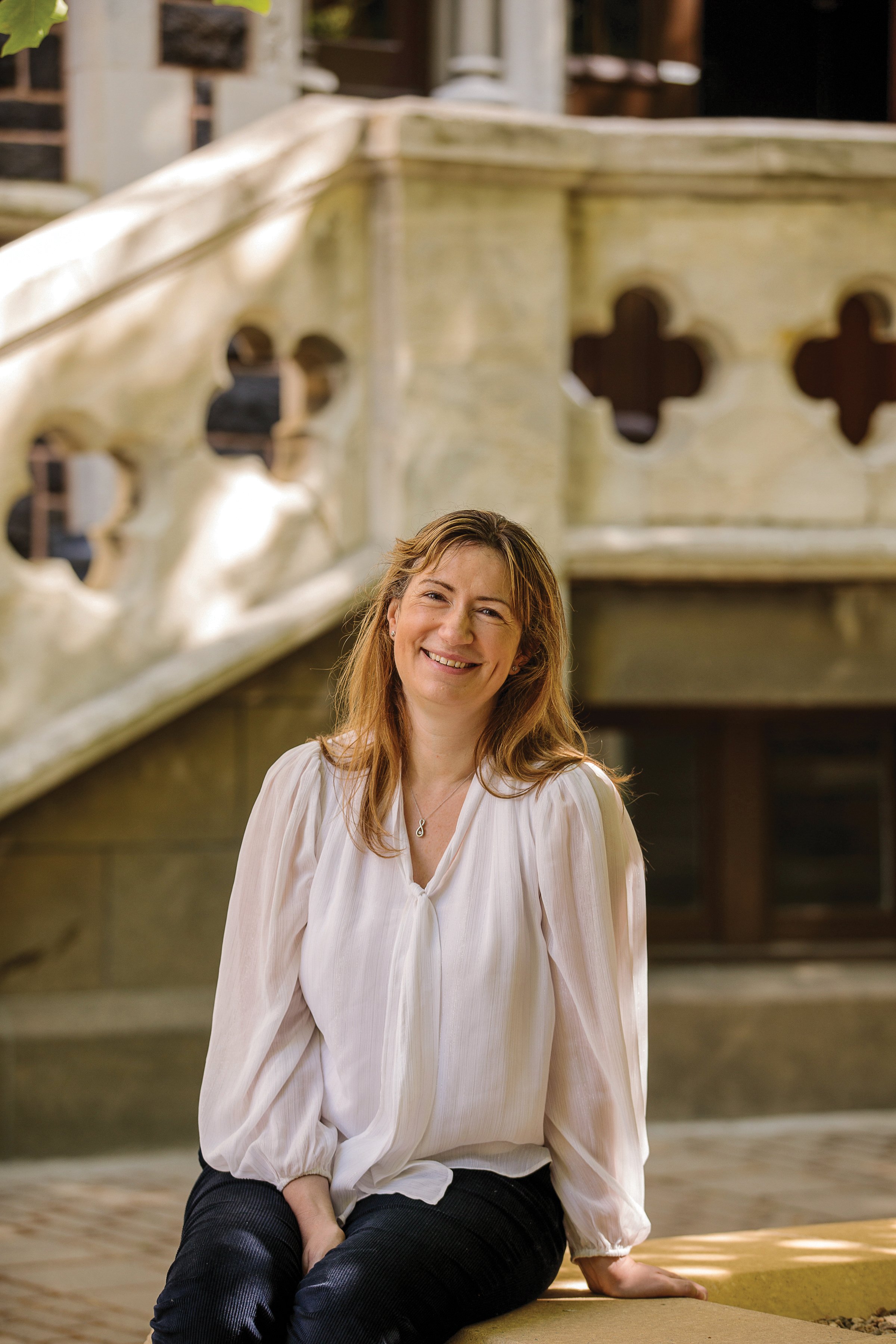
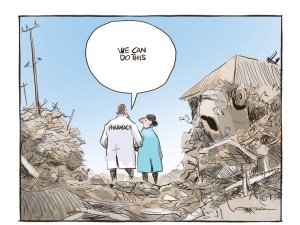

![TRUCK TRAPPED BY FLOODING ON WASHED OUT SH2 BETWEEN NAPIER AND WAIROA, TAKEN BY NZDF NH90 CHOPPER [IMAGE: NZDF]](/sites/default/files/styles/cropped_image_4_3/public/2023-02/Napier-to-Wairoa-SH2-image-1.jpg?itok=mBixzAGh)

